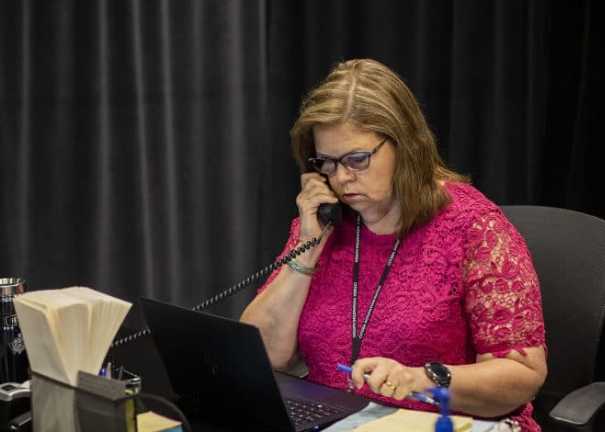
- Details
- By Chez Oxendine
SHAWNEE, Okla. — Unemployment has soared amid the spread of COVID-19, as businesses shut down and revenues dropped. Oklahoma stands at a 7.1 percent unemployment rate as of July 2020, more than double the 3.2 percent rate in February.
The unprecedented situation has prompted state and federal government responses like direct stimulus checks and extra benefits for those collecting unemployment insurance. Native American communities are stepping up, too, enacting programs to provide extra benefits for tribal members in dire straits.
The Citizen Potawatomi Nation’s Coronavirus Relief Fund is one example. Established in early June, the fund draws on resources allocated to the tribe by the CARES Act to assist its tribal citizens.
The fund provides up to $1,200 to those who can prove they have been furloughed or left unemployed and impacted negatively by COVID-19. Another program offers tribal member-owned businesses up to $5,000 to assist with business interruptions caused by mandatory closures, limited reopening procedures and decreased customer demand.
The assistance represents what the tribe called “Phase 1” of the Coronavirus Relief Fund in a news release.
The fund’s next phase focuses on students and elders. Programs include $300 per eligible dependent for school supplies, clothes, and personal protective equipment, or providing elders with a $200 grocery allowance through December.
In addition, eligible tribal members can request assistance for expenses such as rent, mortgage payments, utility bills, car payments, and insurance premiums.
In Phase 2 of the program, the tribe will be able to show that 65 percent of the money it received from the Treasury will go directly to Citizen Potawatomi member support programs, according to Tribal Chairman John “Rocky” Barrett. “We will keep responding to the needs of our Tribe for as long as we are able – until we run out of this money.”
The remaining 35 percent accounts for “job protection, technology, prevention, infrastructure and supplies,” Barrett said.
“This includes investment in medical and personal protective equipment, cleaning and disinfecting supplies and health care expenses associated with COVID-19. These funds will also cover the costs associated with reopening and stabilizing our enterprises,” Barrett said. “This includes paying for COVID-19 communications and training, protective physical barriers, information technology systems, infrastructure and equipment that includes remote work capabilities.”
CPN tribal members can find more information on assistance at undefined.
More Stories Like This
Native News Weekly (August 25, 2024): D.C. BriefsUS Presidents in Their Own Words Concerning American Indians
Native News Online Marks 15 Years of Warrior Journalism
I’m a Minneapolis Postal Worker. This Is What I Saw.
Next on Native Bidaské: Inside Dark Winds with the Cast of Season 4
Help us defend tribal sovereignty.
At Native News Online, our mission is rooted in telling the stories that strengthen sovereignty and uplift Indigenous voices — not just at year’s end, but every single day.
Because of your generosity last year, we were able to keep our reporters on the ground in tribal communities, at national gatherings and in the halls of Congress — covering the issues that matter most to Indian Country: sovereignty, culture, education, health and economic opportunity.
That support sustained us through a tough year in 2025. Now, as we look to the year ahead, we need your help right now to ensure warrior journalism remains strong — reporting that defends tribal sovereignty, amplifies Native truth, and holds power accountable.
 The stakes couldn't be higher. Your support keeps Native voices heard, Native stories told and Native sovereignty defended.
The stakes couldn't be higher. Your support keeps Native voices heard, Native stories told and Native sovereignty defended.
Stand with Warrior Journalism today.
Levi Rickert (Potawatomi), Editor & Publisher

